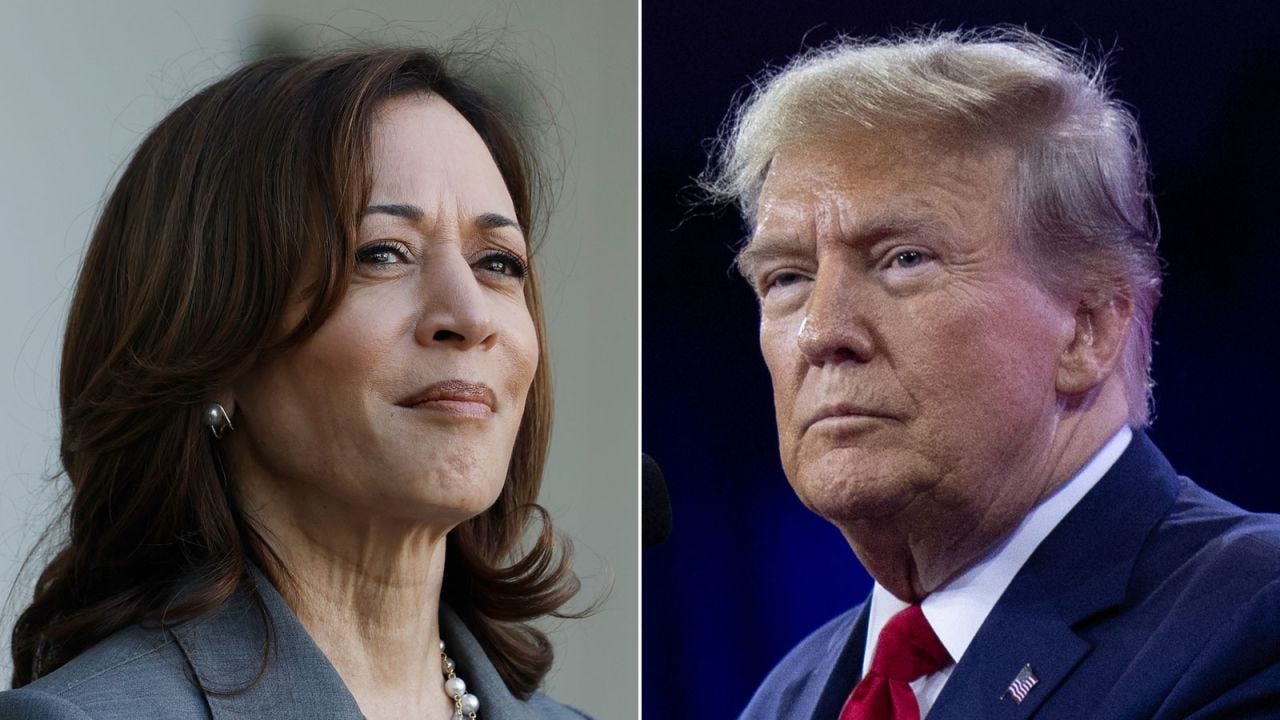What's Wrong and What's Correct About not Endorsing a Candidate for President
The Los Angeles Times and Washington Post decided to go against tradition and not endorse Kamala Harris or Donald Trump. It caused a furor.
There were heated emotions at the Los Angeles Times and Washington Post — and fury as well by a segment of readers and voters after those media outlets decided not to endorse a candidate for President of the United States.
It was so offensive to some newspaper employees and readers that it set off editorial resignations and a voluminous cancellation of subscriptions.
The Times editorial board was ready to endorse Vice President — and Democratic candidate Kamala Harris yet the newspaper’s owner, Patrick Soon-Shiong, thought that was a bad idea and prevented it.
He remains confident that he made the correct call.
“I have no regrets whatsoever,” he told reporter James Rainey of the Times. “In fact, I think it was exactly the right decision.”
The move however led to three members of the board resigning and thousands of subscribers to end their business relationship with the newspaper.
Soon-Shiong remains steadfast.
“The process was (to decide): how do we actually best inform our readers? And there could be nobody better than us who try to sift the facts from fiction” he commented, adding that the decision on whom to vote for was up to the readers, not the Times.
“I’m disappointed by the editorial (board) members resigning the way they did but that’s their choice, right?” Soon-Shiong rhetorically asked.
Readers of the Post were also angry after publisher William Lewis said the newspaper would not endorse a presidential candidate in this year's election or in future elections.
Tens of thousands of readers ended their subscriptions in protest, while one-third of The Post's editorial board resigned. That board staff also planned on endorsing Harris.
Lewis communicated that it would be better for readers to make up their own minds.
In "a note from our owner,” Jeff Bezos explained that endorsements give off the perception of bias and that many Americans don't believe the media and that endorsements do nothing to influence an election.
He went on to say that the decision to end presidential endorsements should have taken place earlier.
"Ending them is a principled decision and it's the right one," Bezos said.
Two columnists — and three of the nine members of the editorial board — quit.
The anxiety, fear and anger in the country is intense. Did the Times and Post do the right thing or not — or is the answer more nuanced?
“Opting not to support a candidate might be considered a professional choice when aiming to maintain objectivity and enable readers to develop their own viewpoints independently, reflecting a move towards unbiased journalism,” says Mike Fahey, the founder and chief executive officer at Fahey Communications, a PR firm specializing in political campaigns, business-to-business PR and crisis communications.
“Nonetheless, some may view this stance of endorsing candidates as a responsibility that represents the voice and ethical principles of a publication.”
There is a risk to this philosophy however, as the leadership of the Times and Post knew was likely to occur.
“The downside is the alienation of readers who perceive these endorsements as customary reflections of the newspapers’ beliefs,” Fahey says. “However, the positive aspect is that it could create a sense of impartiality, which may attract readers who're cautious of media.”
The debate about the endorsement tradition and journalistic ethics of what transpired continues. Some critics say that what the Times and Post did set a dangerous precedent yet supporters believe that news outlets have no place thinly veiling their bias in concerted efforts to persuade voters.
“This situation poses a concern as it indicates a shift from a standing practice that numerous readers view as a crucial element of journalistic credibility,” Fahey states.
He elaborates.
“Major newspapers have customarily supported candidates to offer insightful and well-informed viewpoints on leadership decisions,” Fahey points out.
There is longstanding risk now being assumed by the owners and publishers that they might not presently understand.
“Discontinuing this practice may erode public confidence in these publications’ commitment to expressing their opinions,” Fahey says. “It also establishes a precarious precedent for other media organizations by implying that sidestepping controversial issues is more favorable than addressing them directly.”
There is already cynicism towards big media and the public and that may not subside. Confusion could also become an unexpected outcome.
“This approach could potentially exacerbate divisions in public sentiment,” Fahey suggests. “Moreover, it creates uncertainty regarding the newspapers’ position, making readers ponder the papers’ stance on significant matters.”
The Times and Post now have a challenge with relationships with disgruntled employees. Those conflicts may remain irreconcilable or at least painfully slow to heal.
“Many workers may hold onto feelings of frustration for a period of time because endorsements are closely linked to the newspapers’ identity and principles,” Fahey says. “Such employees might perceive a decision not to endorse as a challenge to their purpose and values, particularly when they suspect that the choice was swayed by ownership more so than editorial freedom.”
The emotions are expected to run hot for the foreseeable future.
“This sense of bitterness could endure over time as employees worry that forthcoming decisions may lack clarity or input from newsroom staff,’ Fahey forecasts.
“Yet by fostering communication within the organization and promoting transparency among leaders while recommitting to maintaining standards and integrity, it could potentially alleviate some of the existing dissatisfaction, gradually.”
For many readers, endorsing a candidate, especially for President of the United States, is an expected professional and ethical responsibility, yet critics argue that it is an act of self indulgence and a show of bias that is a slippery slope in regards to media trust, stakeholder relationships and reputation.
“Choosing not to support a candidate for a role, like the presidency, can be viewed as a way to maintain fairness and avoid accusations of favoritism or prejudice in decision-making processes,” Fahey says.
“It could also come across as self-centered and risky since it might lead to distancing readers who rely on the publications’ recommendations as an important journalistic service and moral compass.”
Providing guidance may not be as optional as owners of news outlets may assume.
“Many people consider endorsements to be crucial,” Fahey says. “By abstaining from them, papers could inadvertently imply negligence in influencing perspectives.”
That could lead to deeper unwanted outcomes.
“This choice might damage trust and strain relationships with stakeholders while also putting the publications’ reputation at risk since endorsements have historically allowed news outlets to engage directly in the process,” Fahey warns.
Michael Toebe is a specialist for trust, risk, relationship, communications and reputation at Reputation Intelligence - Reputation Quality. He serves individuals and organizations by helping them further build, protect, restore and reconstruct reputation.
Subscribe for free or become a paid subscriber for extra benefits.
Follow Reputation Intelligence on Twitter/ “X”
Follow Reputation Intelligence on the Medium platform for more stories/insights








